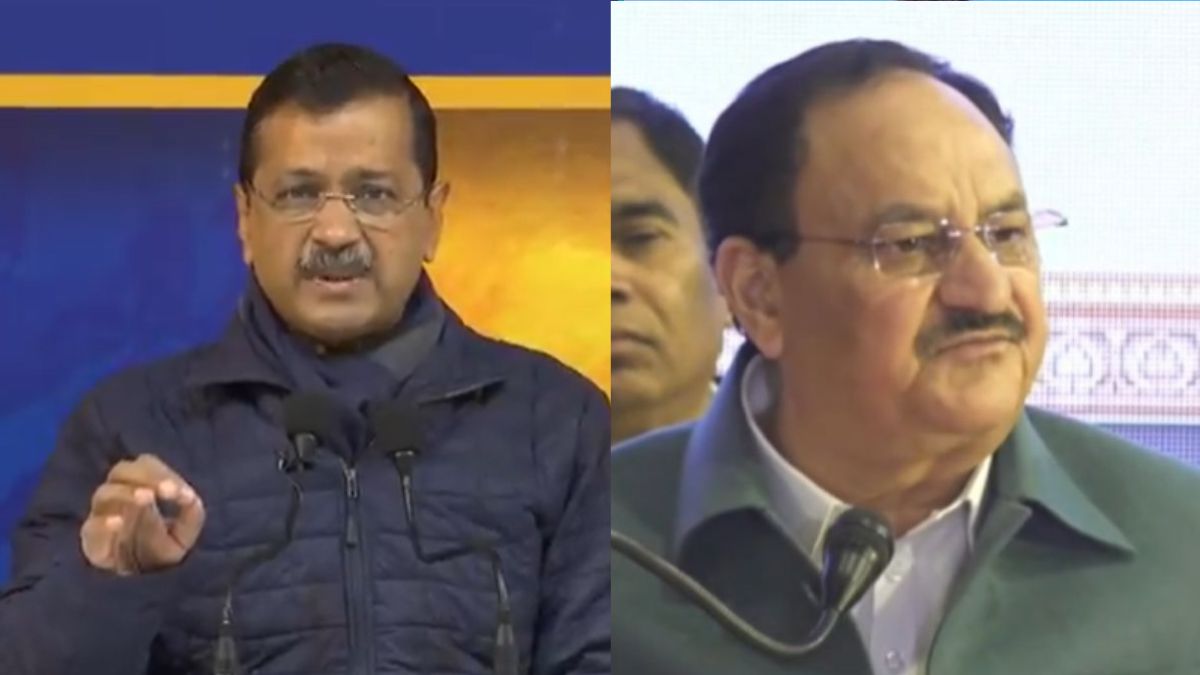Delhi Elections 2025: A Clash of "Revdi Culture" and Welfare Schemes
Get ready for a political showdown! Delhi's 2025 elections are shaping up to be a dramatic battle between the incumbent Aam Aadmi Party (AAP) and the Bharatiya Janata Party (BJP), with the central theme revolving around welfare schemes and the controversial "revdi culture." Arvind Kejriwal's AAP and the BJP are locked in a heated debate over freebies versus development, leaving voters to ponder the true meaning of progress. Are freebies truly a form of welfare, or are they unsustainable and detrimental in the long run? The fight for Delhi will give you the answers!
AAP's Defense of Welfare Schemes
The AAP has aggressively defended its generous social programs, arguing that these initiatives improve the lives of ordinary Delhiites. They have presented compelling data showcasing the positive impact of schemes like free electricity and healthcare on families, highlighting improvements in financial well-being and improved access to essential services. The AAP highlights these schemes as crucial elements in their vision for Delhi, illustrating that they directly improve living standards. This approach is smart, as voters may value the immediate benefits of welfare programs.
BJP's Counterargument: Development vs. Freebies
The BJP, on the other hand, positions these same policies as "revdi culture", painting the AAP as irresponsible spenders with a short-sighted approach to governance. They stress sustainable economic development, pointing to investment in infrastructure, job creation, and better governance as hallmarks of progress. This argument attempts to reposition the welfare debate, implying that the AAP's methods are financially precarious. Whether voters prefer immediate gains over future prosperity remains to be seen.
The "Kejriwal Patra" Controversy: A Copycat Manifesto?
The BJP's election manifesto, dubbed by the AAP as the "Kejriwal Patra," has sparked significant controversy. The AAP points to similarities between BJP promises and existing AAP schemes. The AAP's clever approach to this situation highlights this apparent contradiction. Arvind Kejriwal argues that there is no meaningful distinction between what the BJP proposes and what the AAP already provides. It has presented the BJP’s manifesto as simply adopting their policies, without originality or substance.
A Clever Campaign Tactic?
Is the BJP's strategy simply a way of winning over voters who are currently happy with AAP's existing welfare system? Or will voters interpret it as a lack of strong ideological convictions? Ultimately, it’s unclear what tactic the BJP is employing, but its impact remains to be seen as Delhi's political scene unfolds.
Promises, Promises: Can the BJP Deliver?
The BJP's promise to replicate AAP's successful schemes, if voted in, has raised significant questions. A key point revolves around the BJP's long-term vision for the future. Critics question whether the BJP intends to merely imitate the AAP’s model or if the party possesses independent, innovative ideas. If the promises are merely tactical moves, then how will the party deliver long-term sustainable policies?
Promises to the Women Voters
The BJP's promise of financial aid for women and mothers forms an important plank of its strategy. This could be vital in winning over female voters, who now play a decisive role in electoral outcomes. Will it be sufficient to sway voters toward the BJP’s agenda or will this simply be considered a response to AAP’s already-implemented benefits?
The Verdict: Will Delhi Vote for Welfare or Development?
The upcoming Delhi elections present a unique opportunity for voters. This clash between different governance models creates a fascinating opportunity to examine the priorities of different political entities. Ultimately, it rests on what voters believe comprises responsible political behavior: the delivery of immediate welfare programs, or the focus on broader sustainable developmental agendas. As election day approaches, what policies will resonate the most with voters?
The Future of Delhi's Politics
The outcome of this election could significantly impact the future of Indian politics. It will not only determine the ruling party of Delhi, but also provide essential insights into broader voter attitudes toward social welfare programs and economic growth strategies across India. Whether voters prefer the familiar path of existing AAP programs or will embrace the changes championed by BJP, only time will tell!
Take Away Points:
- The Delhi 2025 elections will feature a major clash between the AAP and the BJP. Both parties will attempt to showcase their policy approaches on social welfare programs.
- The BJP's strategy focuses on addressing existing programs, potentially demonstrating a lack of vision.
- The upcoming election will set the tone for future elections across the country.




